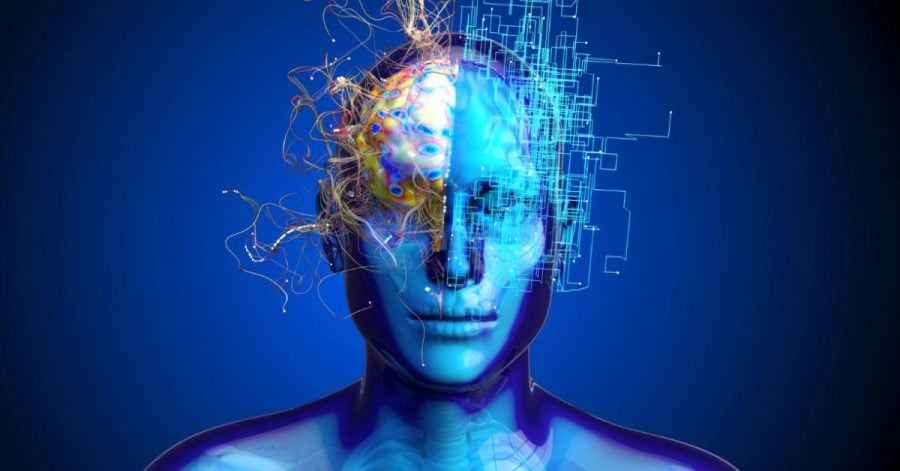While much of the debate regarding the use of AI during the past year has been around productivity and how it can help humans work less, work smarter, or better, many have been posing another important question where this dominating technology can play a part: longevity.
According to estimates from the Aging Analytics Agency, a UK-based body focusing on longevity analysis, the longevity economy is well on the course to reach $33 trillion by 2026. Much of the resources are already put into extended biotechnology research and cell reprogramming, with AI embedded into many of the tools used.
“At its core, the rejuvenation industry is built on the promise that cellular reprogramming can trigger cells to reverse aging factors and restore characteristics of their younger state. This form of computational biology will require many of the tools associated with AI to assist researchers with processing the massive multifactorial analysis that will be required to walk the fine line between desired and undesired changes in cellular behavior,” Bruno Nardone, global head of healthcare and life sciences at AI and data science software service company Quantiphi, tells The Recursive.
Furthermore, he adds that foundational AI practices of high-performance computing, simulation, and predictive modeling generative AI are already being used to support unique biochemistry use cases for applications in drug discovery, mRNA development, immunotherapy analysis, and related fields.
The CEE region has also seen various companies making strides in various related fields such as creating an universal data engines that enables users to access, analyze, and share complex data with great flexibility; using conversational AI to help both patients and doctors; platforms that unifies biomedical data to unlock its potential in precision medicine research, or solutions that simplify the R&D process of finding new drugs and preparing them for commercial use.
“These will logically be extended into the rejuvenation industry as trends like generative biochemistry and full “in silico” modeling of gene expression from rejuvenation stimulants are critical to guide scientists carefully forward toward human applications for therapies,” Nardone explains.
Democratizing longevity research
For others, democratizing longevity research is a priority when it comes to making sure that most of humanity can enjoy such benefits. For one company, this is where AI comes into play.
Rejuve is a decentralized AI-powered longevity research network. Their mission? To create an international database that would provide better insights into human aging. The Recursive met Rejuve AI’s CEO Jasmine Smith at the Cardano Foundation Summit in Dubai. We discussed how AI can aid humanity in its search for longevity and healthy aging.
According to Smith, the current model of healthcare has long been broken, especially when it comes to longevity. The main reason for this is that the industry is mainly focused on mitigating symptoms and generating profits rather than treating root causes while making no concerted effort towards extending healthy longevity. And Rejuve now wants to change all of that.
“We’re starting this with a mobile app that we’ve been developing for people to be able to track their personal health data, earn rewards, and contribute to this effort,” Rejuve AI’s CEO Jasmine Smith tells The Recursive.
The process is similar to the one for wearable devices. Together with the data that users of the app provide, Rejuve also has a network of labs, public databases, and clinics that also provide their data for research.
As Smith further explains, the AI models that Rejuve uses are designed to harness vast amounts of medical and biological data, transforming it into actionable insights and therapies.
“The AI crunches that data and gives you some insights and recommendations. But we’re also developing other models such as transformer neural networks and generative AI solutions to be able to layer upon those as well and process more types of data beyond just your surveys and wearables, such as genomic data, epigenetic glycans, CG all sorts of other types of data as well,” Smith says.
Additionally, there is also the use of blockchain technology, which allows users to earn tokens in exchange for data and get rewards in the form of health-enhancing products and services.
According to Smith, the effort is among the first worldwide to decentralize this type of gathering data, and the outcome of it should result in a better picture of the state of longevity research on a global scale.
“A lot of times, the top-line scientific research is concentrated only in certain regions. So part of this is to be able to crowdsource data from all over the world, so that we’re getting a better picture of all of humanity and not just certain sectors, and then also giving people the opportunity to monetize their data so that they have a deeper connection and ownership over how it’s being used,” Smith adds.
For Haley Lowe, community manager at the decentralized economy and AI marketplace SingularityNET, the combination of AI and blockchain can edge humanity closer to achieving longevity.
“The power of AI to accelerate humanity, both from a consciousness level, but from a productivity level and capability level, will help us achieve longevity. And these things are too powerful for anybody to control. Blockchain, of course, is the way that you decentralize. The other amazing thing about blockchain is that it is this amazing data store, a space where data is being stored in DeFi, health, and many other areas. But without having AI to process it, that data is just sitting there,” Lowe tells The Recursive.
Use cases and future trends
For Tihana Petricevic, founder and CEO of Silver technologies, a software platform and wearable device for telemonitoring elderly patients, AI’s potential to extensively change healthcare and human longevity is best shown in personalized medicine.
“Through the analysis of extensive datasets, machine learning algorithms can identify individualized patterns and predict health issues, enabling the development of customized solutions for the aging-related conditions. This personalized approach not only addresses the unique health needs of individuals but also contributes to the optimization of preventive measures. It fosters a proactive approach to aging and is cutting additional healthcare costs.” Petricevic tells The Recursive.
Furthermore, in the realm of anti-aging, AI contributes also with it’s precision and efficiency, she points out.
“Advanced imaging technologies, coupled with machine learning, allow for highly accurate assessments of aging biomarkers, aiding the development of targeted interventions to slow down or reverse the aging process. Whether through personalized nutrition plans, exercise regimens, or novel therapies, AI empowers individuals to proactively manage their health and age with vitality,” Petricevic adds.
The personal care and skincare industry is already seeing the effects from the use of generative AI, Anastasia Georgievskaya, CEO and co-founder of Haut.AI, an Estonian-based generative AI startup, explains.
“The application of AI in personal care and skincare reflects a shift towards a more scientific and holistic understanding of skincare. By using AI trained on 3 million images and millions of synthetic data points generated using their tool SkinGPT, the Haut.AI team aims to develop a more scientific and holistic approach to skincare,” Georgievskaya, whose startup recently raised $2M to scale its skincare e-commerce personalization software, tells The Recursive.
According to her, the use of AI tech connected with reliable R&D processes will revolutionize the skincare and personal care industries, as well as the longevity industry as a whole. Additionally, personalization is also becoming a big selling point for many brands in the skincare industry.
“Customers will receive more precise guidance and insights regarding their skincare journey. They will be able to track their progress and identify the products that work best for them. This approach has the potential to shift the paradigm of personal care product marketing to educating customers and selling products that cater to their needs and work for them,” she adds.
For Rejuve’s Smith, the prolonged use of AI in the overall longevity space will result in more personalized and preventative medicine.
“Personalized medicine and preventative medicine are seeing a lot of progress, which is good – being able to indeed take all different metrics of that person’s life and status, and not just the general medical history, but also their lifestyle, where they live, what kind of factors they’re exposed to, and to be able to give better treatment and care plans, and assist clinicians to better treat them,” Smith concludes.








